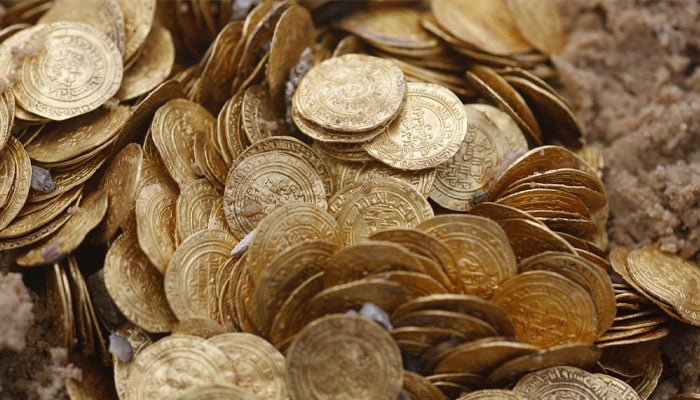Archaeologists uncover ancient Persian gold coins in Turkey
“This 'very rare' discovery was used from late 6th century BC until Alexander’s conquest of Persian Empire in 330 BC,” researchers report
August 06, 2024

A team of archaeologists from the University of Michigan’s Notion Archaeological Project discovered a hoard of gold coins from the Persian Empire in western Turkey, announced the researchers on Friday.
Additionally, the gold coins found are very unique, depicting a kneeling archer, a design reminiscent of those used in the Persian Empire, CBS News reported.
These coins were used from the late 6th century BC until Alexander the Great’s conquest of the Persian Empire in 330 BC.
Speaking to CBS News, Christopher Ratté, director of the project, said that the stash of coins and some artifacts were found in a small pot that was buried under a large house situated in the heart of the ancient Greek city of Notion.
"Presumably, it was stored there for safekeeping and for some reason never recovered," said Ratté.
According to sources, the discovery was made in 2023; however, it was made public last week after seeking permission from the Turkish Ministry of Culture and Tourism.
Moreover, the former curator of coins, Andrew Meadows, believes that this discovery carries a lot of importance.
"This is a spectacular find … of the highest importance," he said.
Ratté added that they have also discovered coins from the 5th century BC, which will help them learn more about the details and history of these coins.
"This hoard will provide a firm date that can serve as an anchor to help fix the chronology of the (entire sequence of coins)."
The researchers reported that the coins were likely hidden due to a conflict in Notion — a region known for military activity. It appears that the owners might have unintentionally left them behind.
“No one ever buries a hoard of coins, especially precious metal coins, without intending to retrieve it," said Ratté. "So only the gravest misfortune can explain the preservation of such a treasure."











